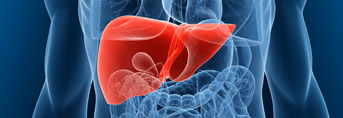Methamphetamine Addiction
Methamphetamine is a highly addictive stimulant that is closely related to amphetamine. It is long lasting and toxic to dopamine nerve terminals in the central nervous system. It is a white, odorless, bitter-tasting powder taken orally or by snorting or injecting, or a rock “crystal” that is heated and smoked. Methamphetamine increases wakefulness and physical activity, produces rapid heart rate, irregular heartbeat and increased blood pressure and body temperature. Long-term use can lead to memory loss, aggression, psychotic behavior, heart damage, malnutrition and severe dental problems. All users, but particularly those who inject the drug, risk infectious diseases such as HIV/AIDS and hepatitis. According to the Substance Abuse and Mental Health Services Administration’s (SAMHSA) 2011 National Survey on Drug Use and Health, there are approximately 439,000 methamphetamine abusers in the U.S. An independent study conducted by the Rand Corporation estimated the economic burden of methamphetamine use in the U.S. at $23.4 billion in 2005. There are no medications currently approved by the FDA for the treatment of methamphetamine dependence. We, in collaboration with the National Institutes on Drug Abuse (NIDA), part of the National Institutes of Health, have demonstrated MN-166 (ibudilast)’s utility in methamphetamine relapse in animals. As a result of the animal studies, NIDA funded an exploratory Phase 1b methamphetamine interaction clinical trial of MN-166 led by investigators at UCLA. In September 2012, we announced approval and funding by NIDA of a Phase 2 clinical trial studying the use of MN-166 for the treatment of methamphetamine addiction. Investigators at UCLA will lead the planned Phase 2 trial with our participation.
We recently received Fast Track designation from the FDA for MN-166 (ibudilast) for the treatment of methamphetamine dependence. Fast Track is a process designed to facilitate the development and expedite the review of drugs that are intended to treat serious diseases and have the potential to fill an unmet medical need. An important feature of the FDA’s Fast Track program is that it emphasizes early and frequent communication between the FDA and the sponsor throughout the entire drug development and review process to improve the efficiency of product development. Accordingly, Fast Track status can potentially lead to a shortened timeline to ultimate drug approval.
Phase 2 Trial in Methamphetamine Addiction
The Phase 2 trial will study the safety and efficacy of MN-166 (ibudilast) for the treatment of methamphetamine dependence in treatment-seeking volunteers (N = 140) who will be randomly assigned 1:1 to MN-166 at a dose of 100 mg/day or matching placebo. Half of the trial participants in each treatment group will have a co-diagnosis of HIV as methamphetamine addiction in HIV-positive individuals is a growing issue. During the 12-week outpatient study, dependent subjects will participate in thrice-weekly clinic visits for health checkups, counseling, urine drug screens, and medication adherence monitoring. The study is powered to detect a statistically significant benefit of MN-166 over placebo on the primary study outcome of methamphetamine abstinence during the final two weeks of treatment – an outcome favored by regulatory authorities for addiction medication assessment. Additional endpoints include the effect of ibudilast on methamphetamine use and neurocognitive performance as well as regulation of HIV-associated factors such as T-cell counts and sexual behavior.
“Preclinical studies have shown that MN-166 may prevent the activation of certain cells in the central nervous system, called glial cells, that have been linked to drug dependence. We are very excited to move this promising molecule into a Phase 2 clinical trial in partnership with MediciNova and NIDA,” said UCLA’s Keith Heinzerling, M.D., Assistant Professor, UCLA Department of Family Medicine, Medical Director, UCLA Center for Behavioral and Addiction Medicine, and principle investigator of the trial. “This study has real public health relevance because a medication treatment may improve health outcomes and reduce the public health burden of methamphetamine dependency, especially those with HIV infection, where there is high risk of co-morbidity.” For more information on the MN-166 (ibudilast) Phase 2 clinical trial, please visit http://clinicaltrials.gov/ct2/show/NCT01860807?intr=ibudilast&rank=5.



